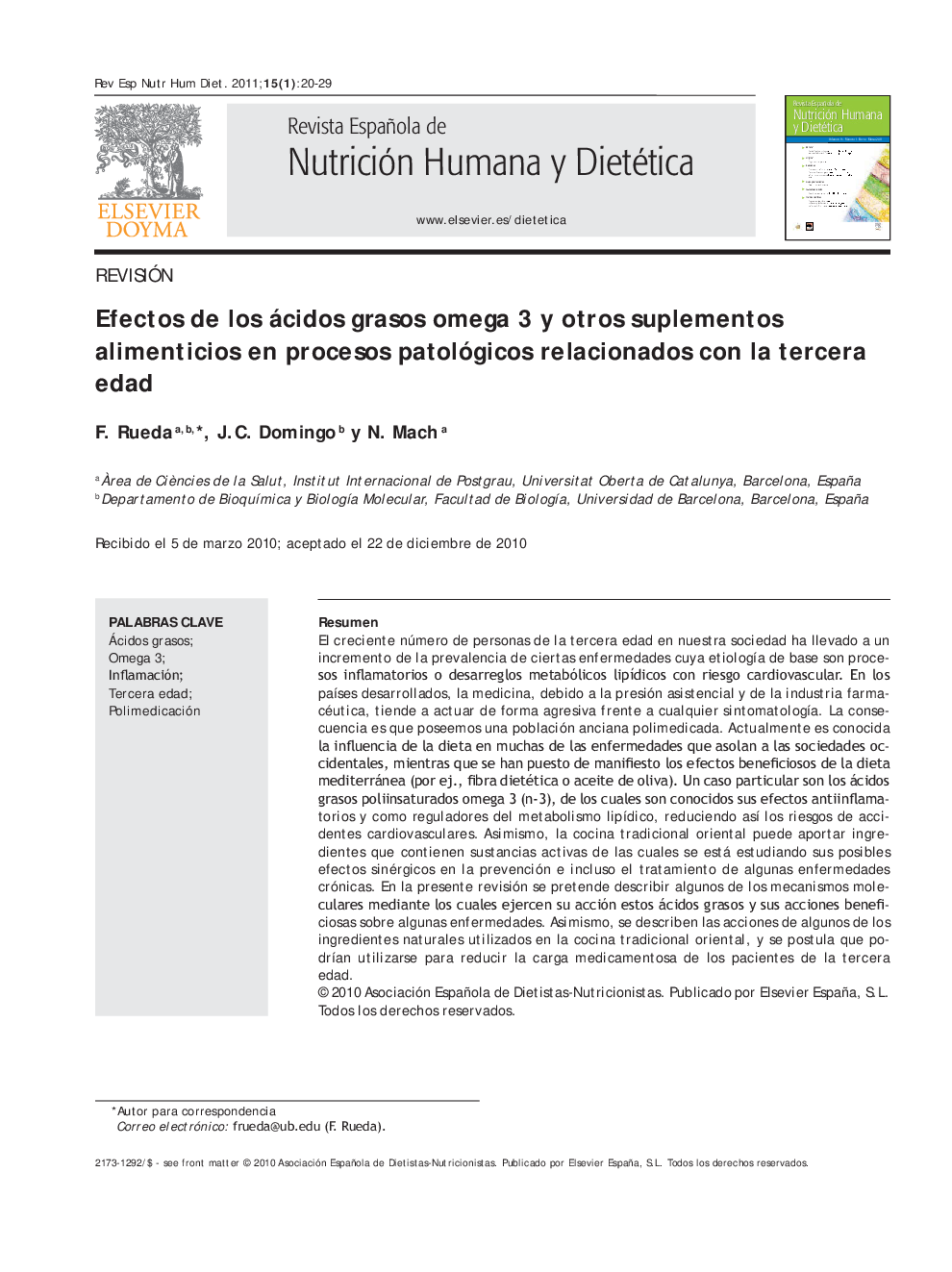| Article ID | Journal | Published Year | Pages | File Type |
|---|---|---|---|---|
| 2693551 | Revista Española de Nutrición Humana y Dietética | 2011 | 10 Pages |
Abstract
The increasing number of aging people in our society has led to a rise in the prevalence of some diseases, the ethiological base of which are inflammatory processes or lipid metabolic disorders, inducing cardiovascular risk. Currently, the medicine in the developed countries, due to a patient assistance and pharmaceutical industry pressure, is prone to act in an aggressive way in front of any symptomatology. As a consequence we have a polymedicated elderly population. Up to the present, the negative influence of the diet on several chronic diseases that devastate the western societies is well known, whereas the knowledge about the beneficial effects on health of the Mediterranean diet has grown in parallel (ie., dietetic fibre or olive oil). A particular case are the omega 3 (n-3) polyunsaturated fatty acids, which are known by its anti-inflammatory effects, as well as its lipid metabolism regulatory role, consequently reducing the cardiovascular events risk. At the same time, the traditional Eastern kitchen can bring ingredients containing active substances which are being explored for the possible synergies in the prevention and even treatment of some chronic diseases. Therefore, in this review, we address some of the molecular mechanisms of the n-3 polyunsaturated fatty acids and their role in health and diseases benefits. Furthermore, we describe some of the natural ingredients used in the traditional oriental kitchen and their beneficial action, postulating that they could be used to reduce drug charge from the aging patients.
Keywords
Related Topics
Health Sciences
Nursing and Health Professions
Nutrition
Authors
F. Rueda, J.C. Domingo, N. Mach,
